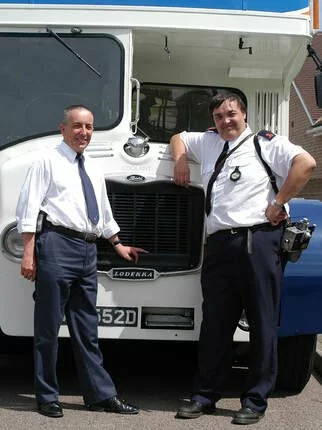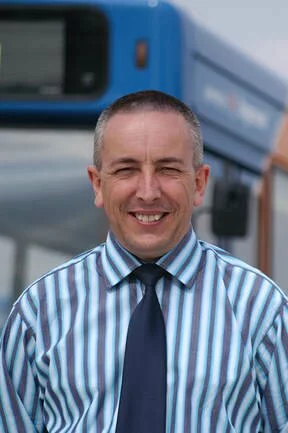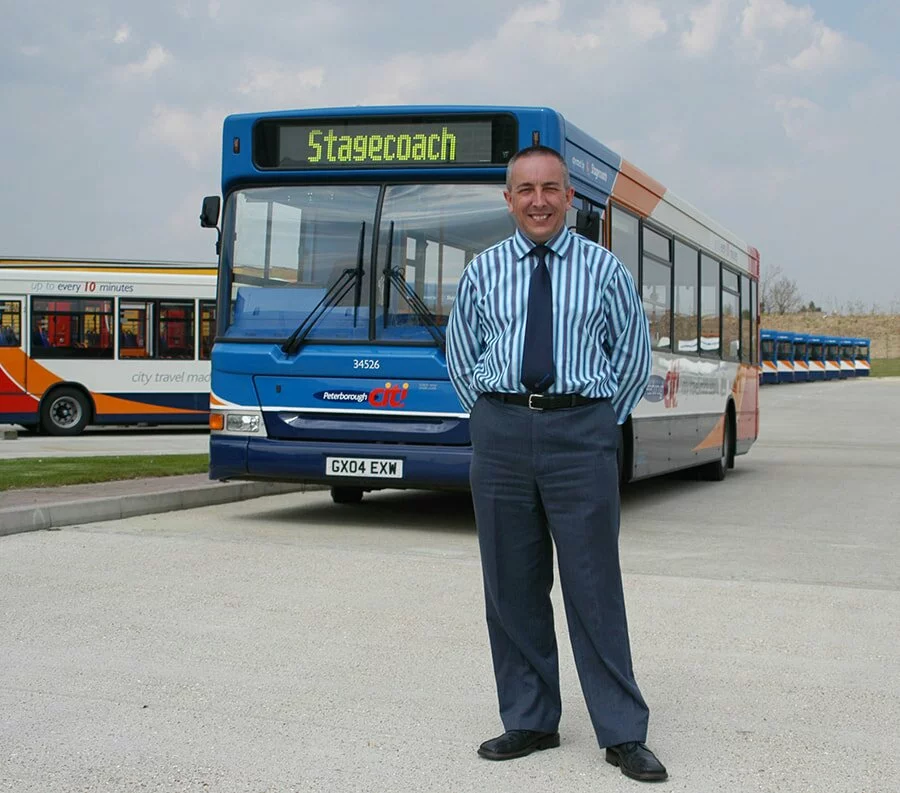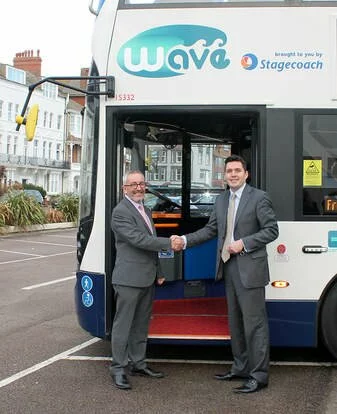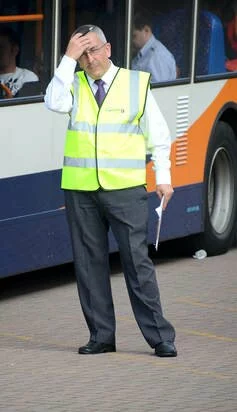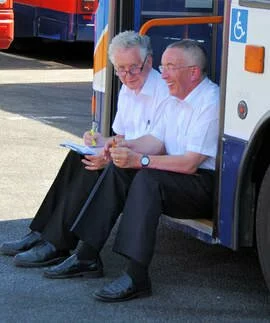- Home Page
- Fleet News Ramblings
- SKM News Views & Blog
- Behind The Picture
- Contact us
Delays, delays and more delays for buses as road congestion increases30/3/2018 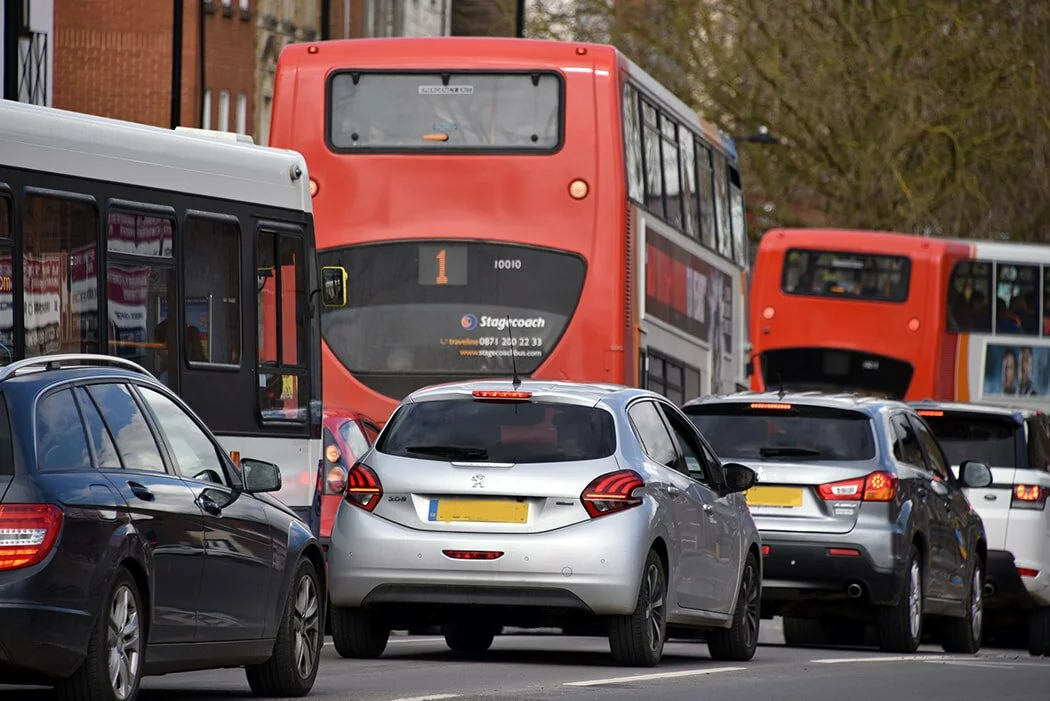
Are there more road works taking place on our already congested roads these days? I only ask because delays to scheduled bus services in various parts of the country are in the increase.
Current Health and Safety regulations mean that lane closures before and after the actual works area have seemingly increased in recent years. I am not questioning the safety of workers but on already congested town and city roads it puts greater pressure on the available roadspace. I think that most bus passengers accept that the volumes of traffic and the effects of road works will result in a couple of minutes delay to some of their journeys. But what happens when those delays get longer. Well, personal observations are that short hop passengers desert the bus, and others may get off one or two stops earlier than they need to as they can walk faster than the bus is travelling. In SKM’s local area Stagecoach in Peterborough is about to revise all of its local timetables. On a number of routes this allows for additional running time at peak times. But what it does do is create a longer gap in the frequency when the additional journey time is introduced and a shorter gap when services return to the normal journey time. The effect is the loss of a consistent every 10 minutes or every 20 minutes frequency. But how else can the effects of road congestion be mitigated. Extra resources, vehicles and drivers, are not a realistic option. They would only be required for a short time every day and would heavily load the route’s operating costs. The alternatives are to do as Stagecoach is doing in Peterborough or reduce frequencies - making ten minute frequencies every 12 or even 15 minutes for example. That creates its own problems and will potentially lead to overcrowding. Normal traffic delays do inevitably result in bunching on high frequency routes. There also seems to be a reluctance of drivers to overtake a late running bus in front of them as it loads at a bus stop. In my time with a PTE in the 1970s and 80s skip stopping was frequent as bus crews would help out the late running service in front. Now in many parts of the country it is the exception rather than the rule. Buses (and I have seem more than one on several occasions) will wait behind the one that is loading. I appreciate that there may be issues where the leading bus has a fully buggy and wheelchair bay but following buses could easily pause to see if their accommodation is needed before overtaking the bus which is stationary and loading. But back to Peterborough and in the last few weeks road works on several city centre roads, and parkways has caused delays of massive proportions. Buses have been taking upwards of 20 minutes to travel distance that would normally be done in under five minutes. Add in a wet day and more traffic on the roads and that 20 minutes delay becomes greater. Passengers become frustrated as do drivers and Controllers have their work cut out regulating services. There is no doubt that mileage is also being lost. Will it get any better? My personal view is no and the challenges that bus operators face will just increase. Stagecoach MD Philip Norwell calls it a day after four decades of service to the bus industry16/3/2018 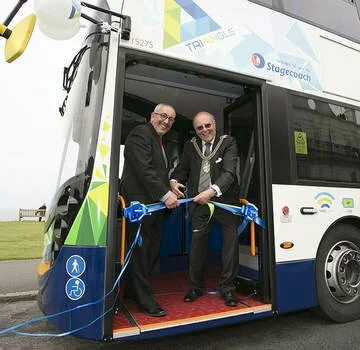
We receive dozens of press releases and statements from bus, coach and rail companies every week and in the main we are expecting them. Occasionally a press statement arrives which was takes us by surprise and that was the case yesterday. The announcement from Stagecoach Group was that Stagecoach South East Managing Director Philip Norwell will leave the business next week after clocking up some 43 years’ service in the bus industry. Now Philip has been extremely supportive of our activities and we dealt with him extensively during his time with the original Stagecoach East (when Peterborough and Cambridge were managed from Northampton along with the former United Counties empire) and the later Stagecoach East incarnation which covered Peterborough, Cambridge and Bedford. Philip began his career at the National Bus Company subsidiary Eastern Counties in Peterborough in 1974, and worked for a number of years as a driver and worker director until the company was taken over by Stagecoach. Philip was always forward looking and his creativity saw many new services launched. He also masterminded the introduction of the Cambridge Citi and Peterborough Citi networks. He became Marketing Officer for Stagecoach Cambridge in 1997 before becoming Commercial Director in 2002. Philip was always forward looking and his creativity saw many new services launched. He also masterminded the introduction of the Cambridge Citi and Peterborough Citi networks. Philip was a huge supporter of heritage operations and took the two Bristol FLFs at Stagecoach East under his wing ensuring that they were used on a regular basis. I have conducted both the open top and closed top FLFs in service on numerous occasions with Philip driving whilst also assisting him and other Stagecoach staff at the Silverstone (British Grand Prix) Park & Ride operation. He also promoted the case for the repainting of the Leyland Olympian Megadekka into original Stagecoach stripes livery, a move that gain the approval of Stagecoach founder Sir Brian Souter. I also had the pleasure to work with Philip over the last fifteen years or so in a professional capacity whilst at Virgin Trains when the Luton Airport-Milton Keynes rail link formed part of the West Coast rail franchise agreement. But as a journalist there were also occasions when some difficult questions were posed. Philip was appointed Managing Director of Stagecoach South East in 2013 and oversaw the transformation of the business gaining Group investment in new vehicles to replace a significant number of non-DDA step floor saloons and double deck vehicles. He even took several Dart SLFs into the South East fleet from Peterborough where in 2004 he had overseen their introduction when new onto the Peterborough Citi network. He also has a number of heritage vehicles to keep him occupied and even arranged the repainting of the last Mercedes 709D minibus in the fleet into its original Stagecoach stripes livery. Stagecoach UK Bus Managing Director for England and Wales, Mark Threapleton, said: “I would like to thank Philip for the sterling work he has done over many years to deliver improvements for bus passengers across the east and south east of England in particular. “He has made a valuable contribution to the business and we wish him well in the future.” Philip Norwell added: “I have reached a milestone in both age and achievements and have decided it is time to move on. I have worked with some fantastic people over the years and it has been a real privilege to have been involved in some of the innovative projects we have delivered together and the many improvements we have made for customers. I wish the team in the south east every success going forward.” And I personally and through SKM wish Philip all the best for the future. A recruitment process for the position of Managing Director, Stagecoach South East is underway. Until an appointment is made, the South East business is being managed on an interim basis by Mike Watson, Regional Director - England & Wales. |
Steven KnightSteven Knight is a Transport Specialist who has over 40 years experience in the bus and rail industries as well as in specialist transport journalism. He is a member of the Chartered Institute of Journalists. ArchivesJanuary 2021 |
 Create your own unique website with customizable templates.
Create your own unique website with customizable templates.
- Home Page
- Fleet News Ramblings
- SKM News Views & Blog
- Behind The Picture
- Contact us

